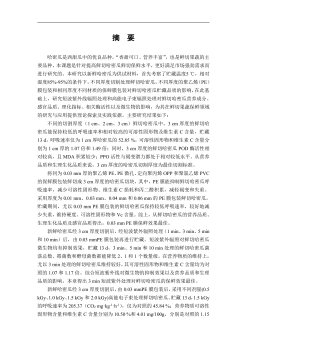戏剧性批评及其在美国总统就职演说中的应用研究
ChapterOneIntroduction1ChapterOneIntroductionDuringtheyearsofstudyonEnglishrhetoric,theauthorhasdevelopedakeeninterestintheanalysisofpresidentialinauguralspeechesfromtheperspectiveofrhetoricalcriticism.Thepresidentialinauguralspeeches,asaformofspeechdiscourse,havetheiruniquefeatures,whichcanbeexplor...
相关推荐
-
我国基层财政困难的制度成因分析与对策研究VIP免费
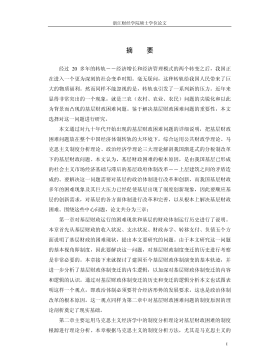
 2024-09-20 42
2024-09-20 42 -
我国煤电产业链纵向交易合约机制研究VIP免费
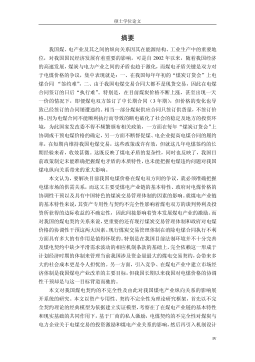
 2024-09-20 33
2024-09-20 33 -
生产要素视角下的上海市产业结构优化研究VIP免费
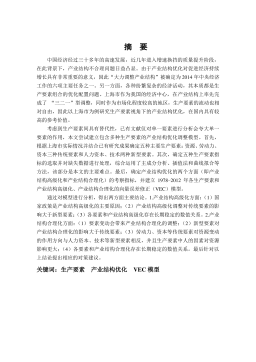
 2025-01-09 8
2025-01-09 8 -
我国银行业结构与经济结构关系研究VIP免费
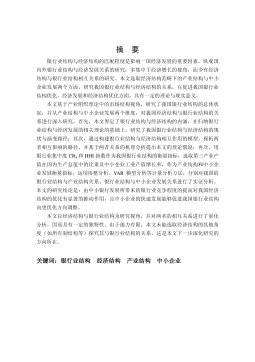
 2025-01-09 16
2025-01-09 16 -
大数据视角下农业供应链金融研究VIP免费
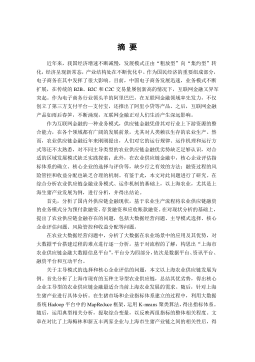
 2025-01-09 12
2025-01-09 12 -
跨国大型综合超市的规划研究VIP免费
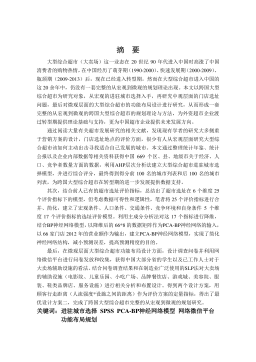
 2025-01-09 9
2025-01-09 9 -
跨境电商农产品质量安全问题研究VIP免费
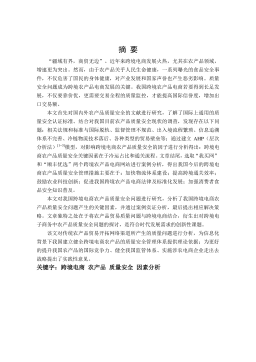
 2025-01-09 9
2025-01-09 9 -
世界市场的虚拟化与我国国际电子商务发展方向研究VIP免费
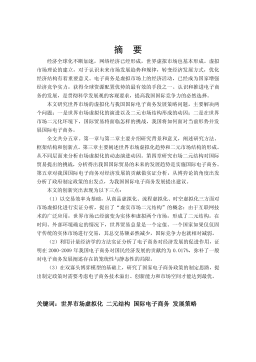
 2025-01-09 30
2025-01-09 30 -
中国政府对电力行业的价格规制问题研究VIP免费
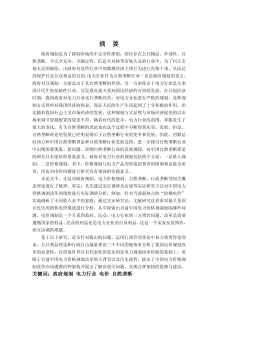
 2025-01-09 18
2025-01-09 18 -
中小企业信息化系统集成技术研究VIP免费
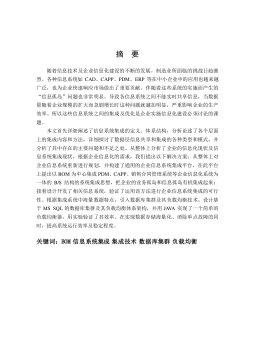
 2025-01-09 29
2025-01-09 29
相关内容
-

跨国大型综合超市的规划研究
分类:高等教育资料
时间:2025-01-09
标签:无
格式:PDF
价格:15 积分
-

跨境电商农产品质量安全问题研究
分类:高等教育资料
时间:2025-01-09
标签:无
格式:PDF
价格:15 积分
-

世界市场的虚拟化与我国国际电子商务发展方向研究
分类:高等教育资料
时间:2025-01-09
标签:无
格式:PDF
价格:15 积分
-

中国政府对电力行业的价格规制问题研究
分类:高等教育资料
时间:2025-01-09
标签:无
格式:PDF
价格:15 积分
-

中小企业信息化系统集成技术研究
分类:高等教育资料
时间:2025-01-09
标签:无
格式:PDF
价格:15 积分


